|
Getting your Trinity Audio player ready...
|
Carolina Villarroel recalls the exact moment when state Rep. Christina Morales came up to her with a plump old Bible that belonged to her grandmother, Angela V. Morales.
“I might have something for you,” Villarroel recalls Morales saying.
Her eyes widened as Morales handed her a thick Bible bursting with historic documents. As an archivist, Villarroel knew each of these pages could plug an important hole in the makeup of the Latino history of Second Ward, or Segundo Barrio as it’s known to its residents.
Villarroel is the director of research of the nonprofit Arte Público Press, where she and two other Latinas – Deputy Director Gabriela Baeza Ventura and Archivist and Program Manager Mikaela Selley – lead efforts to document, preserve and create access to collections that depict the rich history of Houston’s Latino and Hispanic communities.
Archiving Houston’s Hispanic treasures is something Villarroel, Ventura and Selley have done for decades in and out of Arte Público Press. Villarroel and Selley worked for the city of Houston at different times, both leaving due to frustration with how Latino archives were handled and what they said was a lack of resources.
The three now work hand-in-hand leading a team of 10 full-time staff members, three part-time staff, and eight University of Houston graduate and undergraduate students. The team archives, researches and creates access to thousands of collections depicting the rich history of Latinos in and out of Houston.
Latinos living in Houston have long lacked access to the history of their own community, neighborhoods and families. Leaders and community members have called for the city to prioritize archival efforts focused on them, especially considering that nearly half of the city’s 2.3 million residents are Hispanic or Latino, according to the latest U.S. Census.
“Many of the owners of this knowledge want for this to be known,” Villarroel said. “This is important for the rest of the community to know because (it can provide) a sense of belonging.”
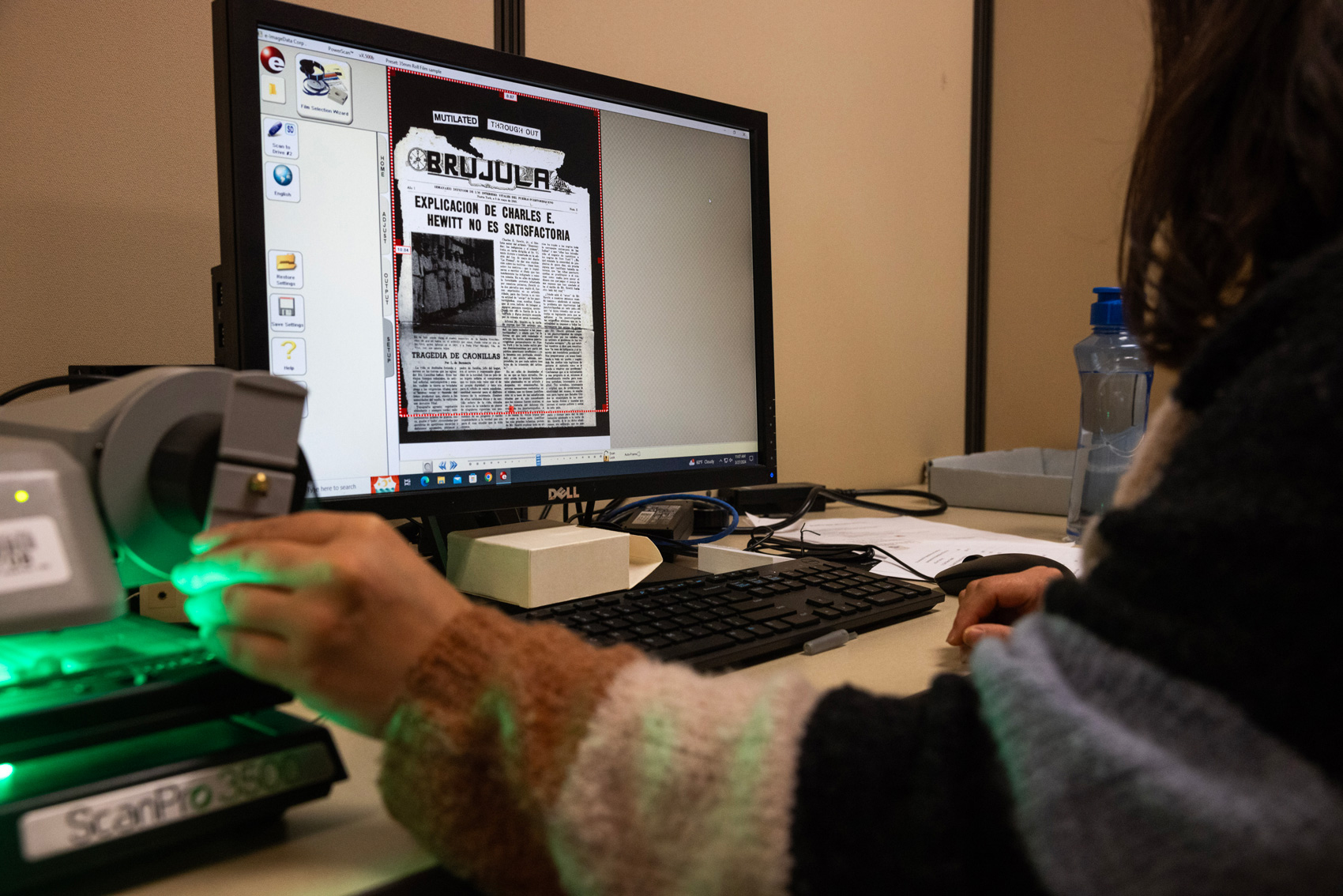
Finding history
Morales, whose family founded the Felix H. Morales Funeral Home in Second Ward in 1931 and the Spanish-language radio station KLVL in 1950, entrusted Villarroel and her team with preserving the contents of her family’s Bible and other records. Morales hopes these documents will help others find pieces of their own history tucked in her Bible.
“It had so much information that my grandmother had stuffed in the Bible, like funeral prayer cards, wedding invitations, and, you know, just different bits of information,” Morales said.
Arte Público Press was established by Nicolás Kanellos in 1979 in Indiana and brought to the University of Houston in 1980. The focus of the press was to publish, promote and disseminate Hispanic cultural materials that accurately represent the community.
The organization later joined the Recovery Program, or Recovering the U.S. Hispanic Literary Heritage, an international push to preserve Latino collections.
Archives document history by scanning documents, newspapers and photographs, taking photos of certain items, or capturing videos of oral histories. The goal is to then make digital archives searchable, which also involves doing research on the history of these items to provide accurate information and context.
Recently, the city of Houston voted to move forward with the creation of a Hispanic History Research Center by devoting about $10 million out of a total of $19.5 million allocated for this project to secure land and upgrades to a warehouse along Navigation Boulevard that will eventually house this center.
Prior to that, Arte Publico was one of the few entities that consistently dedicated resources to Latino archives. As of now, little is known about how collections will be processed and gathered and how other financial resources will be allocated to staff and run this center.
“It’s hard, that's all I can tell you,” said John Middleton, Houston Public Library’s director of spaces. “The library doesn’t make its own budget and there are difficulties there.”
Middleton addressed a crowd of over 100 attendees over the weekend during a town hall meeting organized by those involved in the project, including library officials, the Buffalo Bayou Partnership and the city’s three Latino council members – Mario Castillo, Joaquin Martinez and Julian Ramirez.
The Hispanic History Research Center would be the fourth in the city’s roster, alongside the African American History Research Center, the Family History Research Center and the Houston History Research Center.
Archives related to the Hispanic community have existed at the city level for many years. The Julia Ideson Building houses the city’s Hispanic Archival Collections. But it wasn’t until the announcement of the construction of the Hispanic History Research Center that the city solidified its plans to have a building dedicated to Hispanic collections.
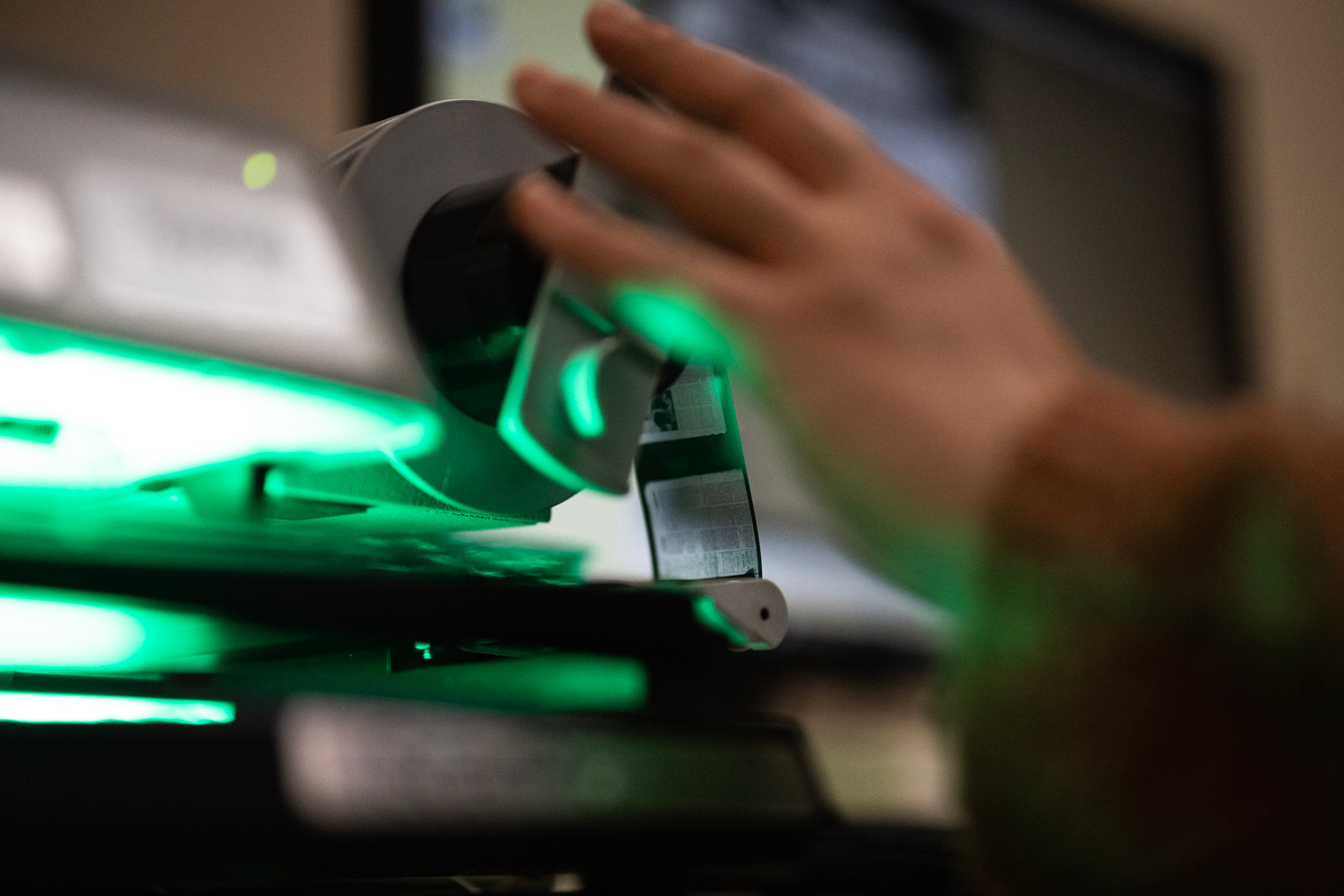
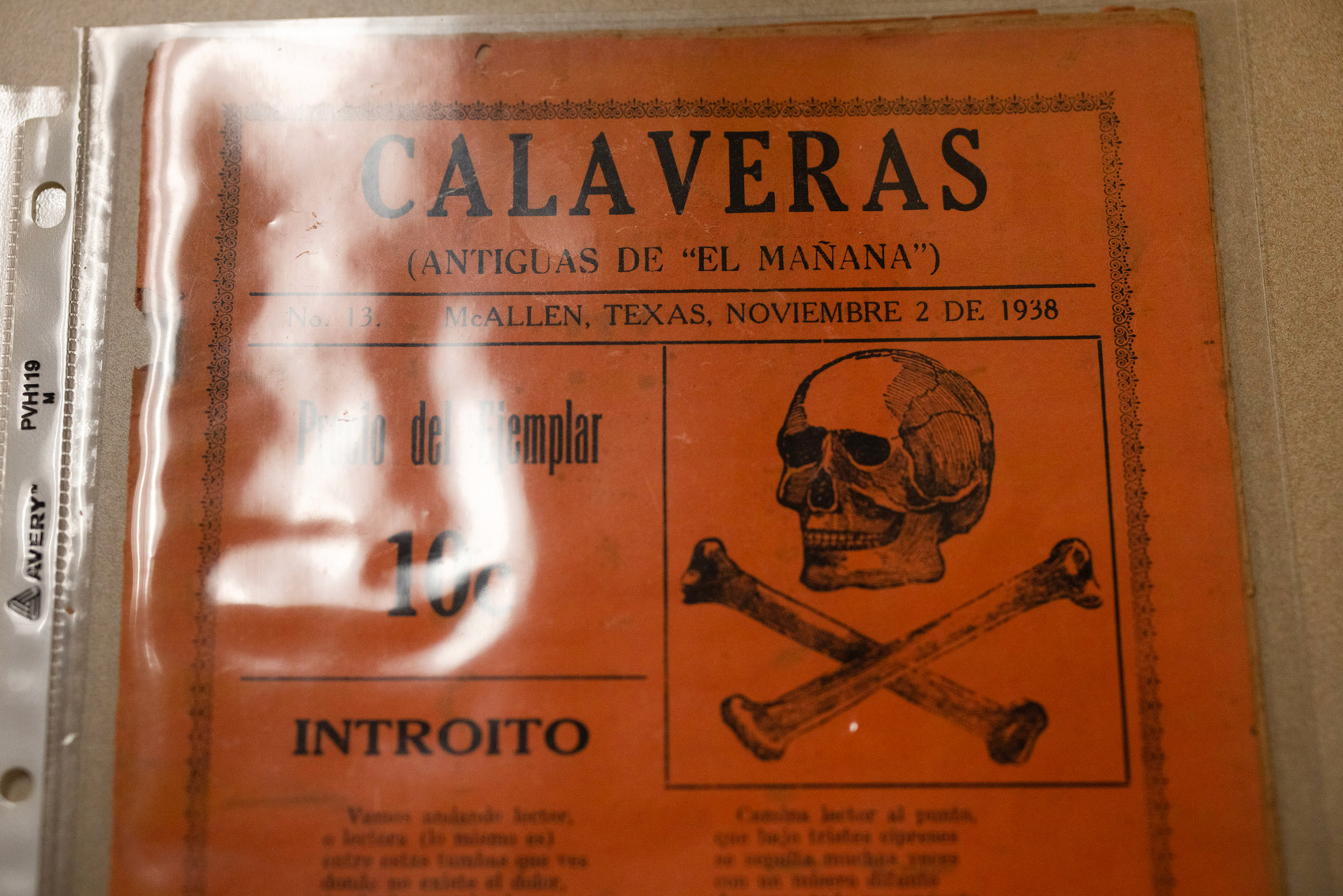
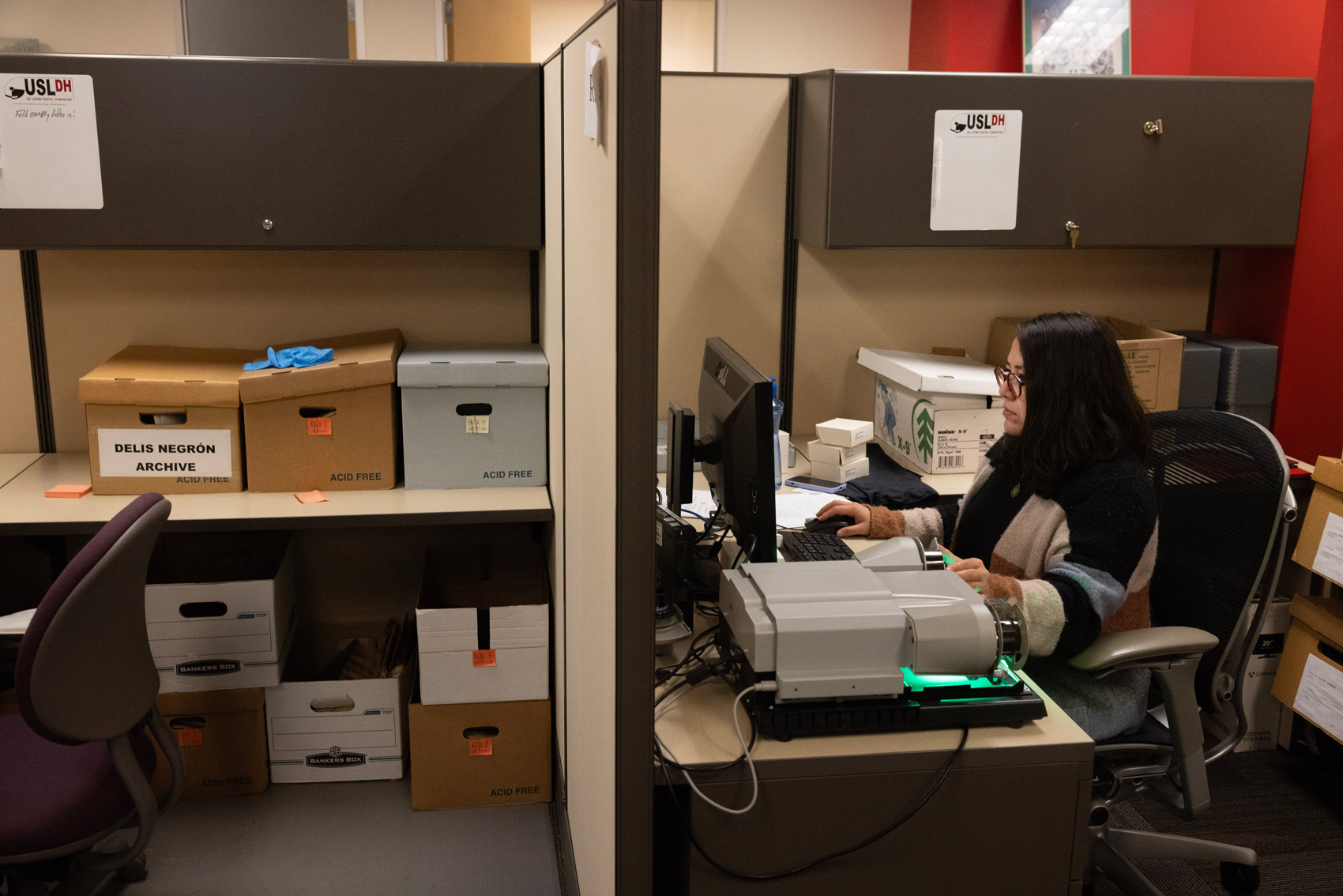
Preservation and representation
In the case of the Morales family, their contributions to the community were well known but not well documented.
The Morales Funeral Home has serviced the historic Second Ward since 1931. It became the go-to place for many families who were denied services in other funeral homes due to their financial status or the color of their skin.
The family was also the sole provider of Spanish-language news and information through the radio station, KLVL, which hosted a popular show called “Yo Necesito Trabajo” where people could announce job openings and call in for information.
“We realized what a treasure trove this is,” Morales said. “They could hear music that would remind them of their homeland. But the most important thing they did is they connected these people with jobs. Thousands and thousands of people were employed.”
Morales realized she had lost access to a small part of the family’s collection of historic records after her grandmother donated some material to the city. Those photos and other documents were never digitized, she said.
This was partly why she opted to open up their trove of records to Arte Público Press’ Recovery program. The Recovery program works with a model called post-custodial, which means it doesn’t necessarily keep the original records, but it does help families restore and preserve their personal archives.
“We work in a way that is more like a partnership with the community,” Baeza Ventura said. “We ask for the opportunity to digitize the materials and if the owner of the knowledge wants it back, then we give it back.”
But there is one key distinction that the archivists want families to understand — they “are not in the business of appropriating” their collections. In fact, families are included in every step of the way.
Arte Público Press staff explains the value of the items to the owners. Then they digitize the collections, and with the family’s permission, they put together a plan to make these collections accessible to the public. From there, families can either keep their original documents, or they can donate them to the organization.
“It’s a whole process,” Villarroel said. “It takes more time, but it is the right way to do it. It’s how it should be done.”
“In a respectful, ethical way,” Baeza Ventura added.
Investing in a community
The Morales Bible held seemingly small, but powerful, items. Among them were a green napkin with tiny flowers, a certificate for a “Free Bible Correspondence Course” and church bulletins.
“This is a very unique item for our collection,” Selley said. “Really, it was the student who was working on this who realized it was two women who had possession of this and were using it in that way.”
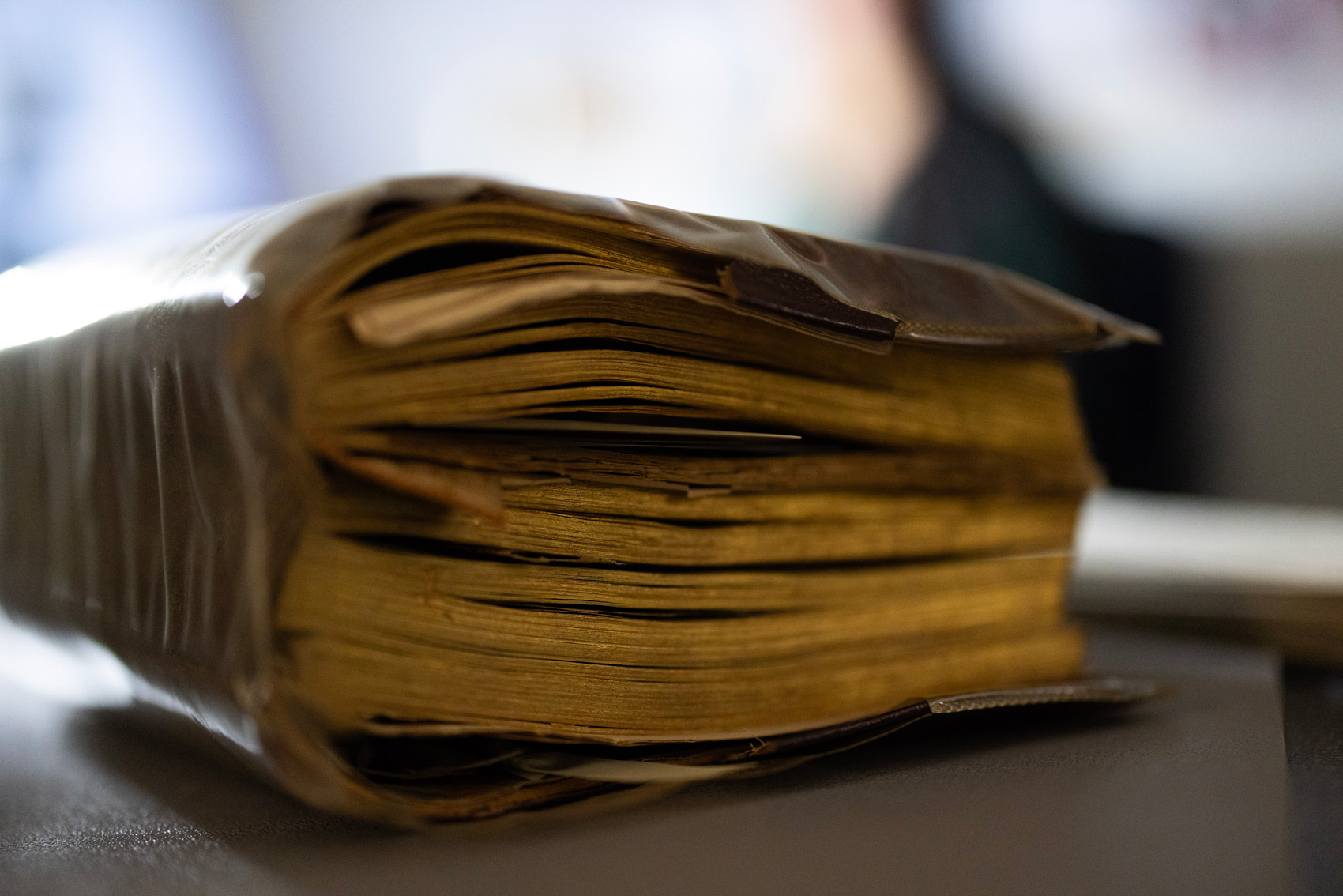
Selley worked for the Houston Public Library System for eight years between 2013 and 2021. She was the first and sole official Hispanic Collections Archivist, tasked with documenting, preserving and creating accessible archives of the history of the Hispanic and Latino communities in the city.
Past archivists, including Thomas Kreneck, made it part of their mission to collect from the Black and brown communities, Selley said. But there was not an archivist position consistently funded to focus on the Hispanic community in a way that matched other communities, such as the African American Library at Gregory School.
In 2009, the historic Fourth Ward’s Edgar Gregory School became the home of one of Houston’s most important archives focused on the history of the Black community. The city made an initial investment of about $11 million to restore and retrofit the once-vacant school and construction of a dedicated space seems to have attracted other donors.
This investment was lauded by the city for helping Houstonians learn more about the city’s Black history by providing letters, photographs, narratives from former slaves and more.
This center also served as an example to other communities, including the Latino community, of what is possible if the city is willing to invest.
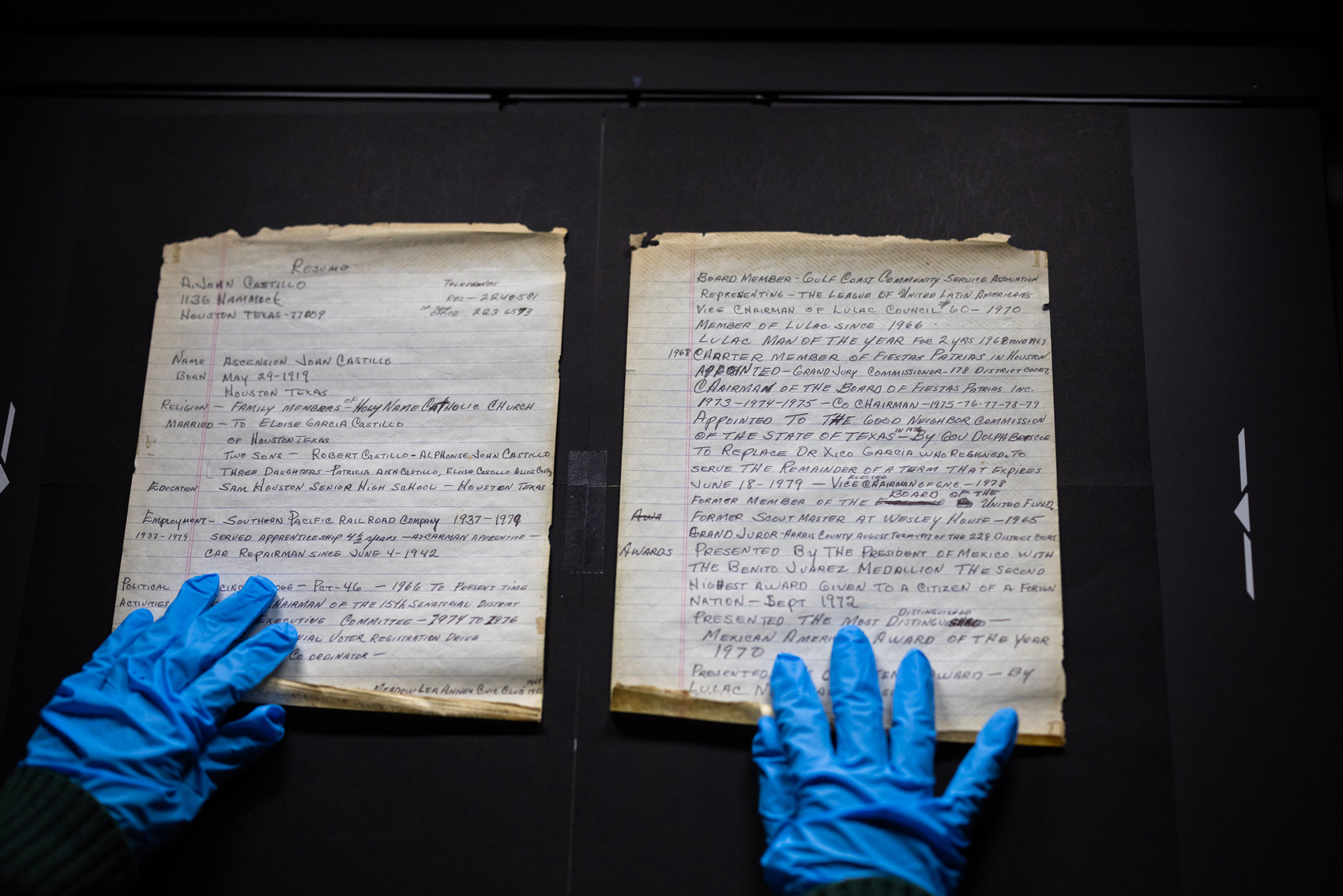
The past informs the future
As the sole Hispanic Collections Archivist for the city’s library system, Selley split her time between actual archival work and coordinating programming and exhibits, leaving little time to do the type of detailed process she now leads at Arte Público Press.
On a recent Tuesday afternoon, Perla Ortiz, 24, a graduate student at the University of Houston, was helping Selley scan photos, certificates and other documents in the collection of Ascension John Castillo, a former Precinct 46 election judge who was married to women’s-rights leader Eloise Castillo. A park in the north side of Houston is named after the former judge who was better known as “A.J.” Castillo.
This was not the first collection Ortiz helped archive. She also led efforts to digitize a collection belonging to local activist and community leader Lolita Guerrero.
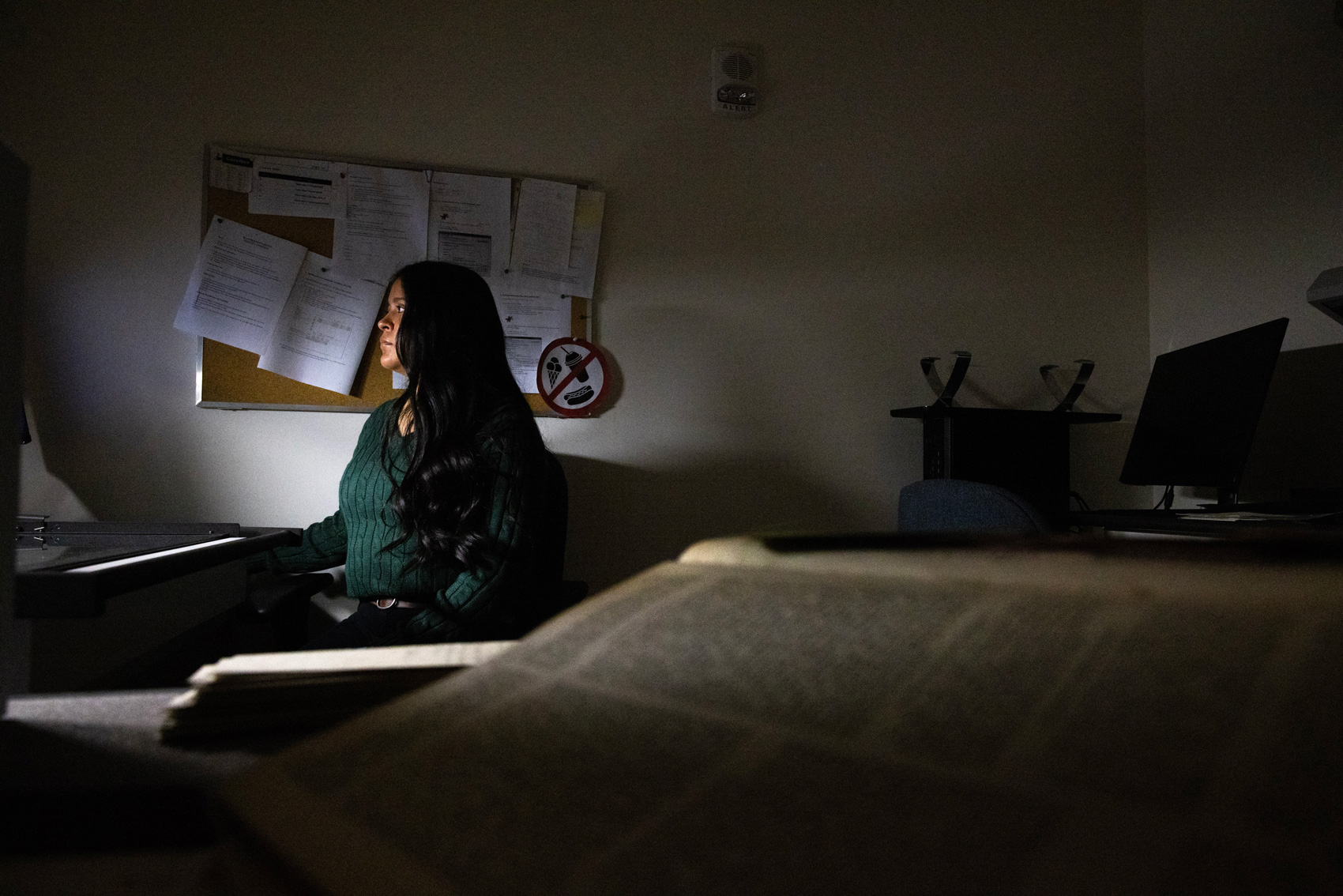
Ortiz, a native Houstonian, says she began to see her city in a different light the more she learned about the figures who have shaped it.
“I hadn’t heard about her, but then I saw all the roots that she had put throughout all of Houston,” Ortiz said of Guerrero. “It’s always surprising to see because you don't realize that one person could have so many influences on so many things.”
The goal of the center should be not to compete for funds or work, Selley said, but to complement the work of organizations like Arte Público and learn from their processes.
Baeza Ventura and Villarroel echoed these sentiments.
“That's the power of having somebody who understands the archive,” Baeza Ventura said. “To create a culture where our communities understand that their histories are valued, that their stories can be included.”


